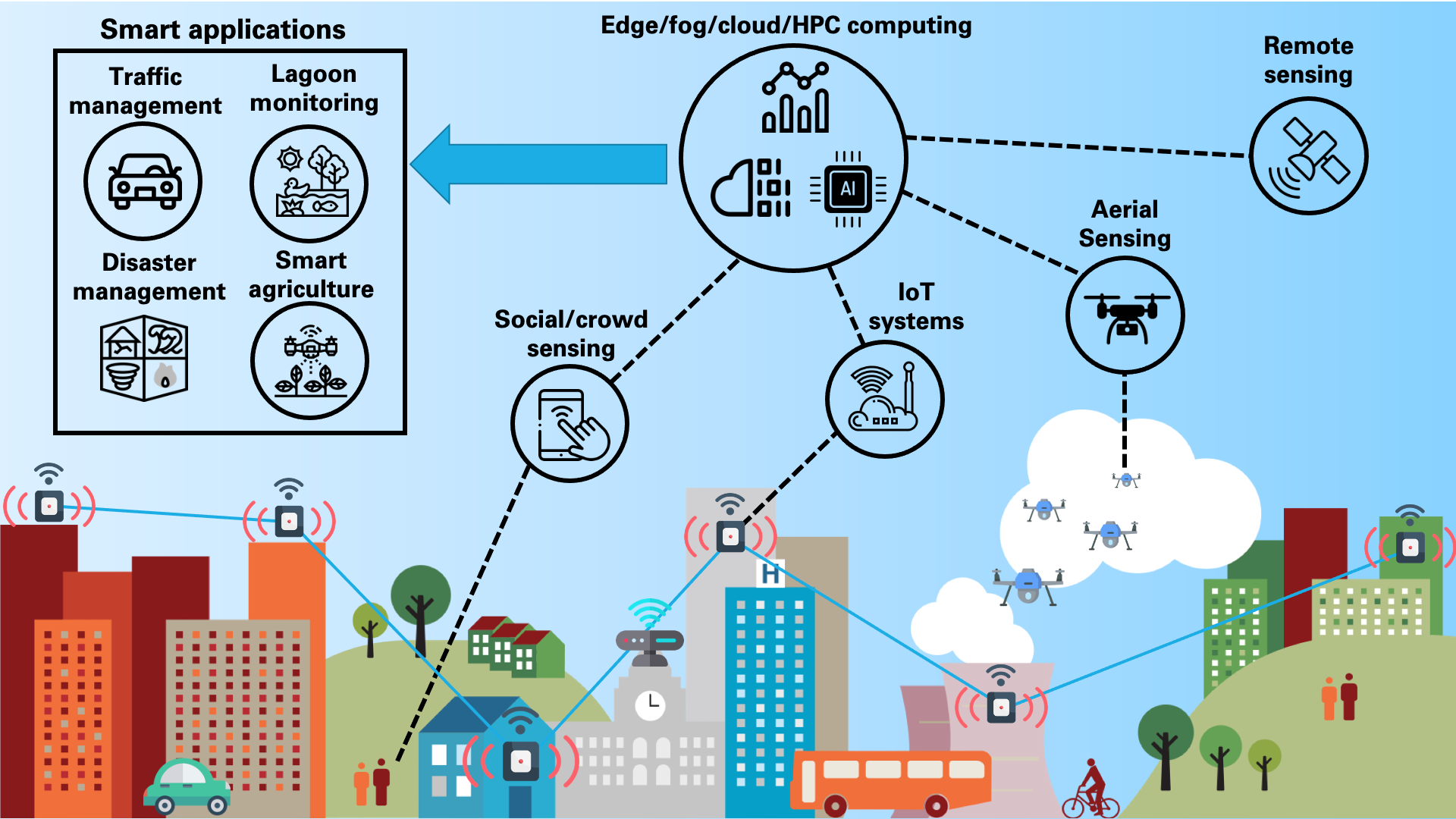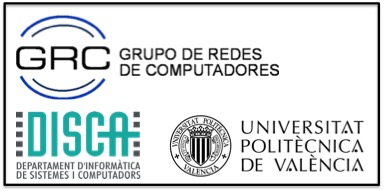"INtelligent Sensing systems for ecosystems, Sustainable mobilITy and Urban spaces" (PID2021-122580NB-I00)
We are experiencing the revolution of the so-called Internet of Things (IoT), which consists of the connection to the Internet of any type of "thing" including vehicles, machinery, appliances, clothing or toys. The goal is to allow the automation of tasks, their monitoring and subsequent analysis, in order to optimize processes and improve the productive fabric. Particularly, smart cities and the introduction of self-driving vehicles require a plethora of accompanying applications and services. The goal is to improve road safety, reduce vehicle contaminant emissions, and enhance the driving experience in general. In this context, the concept of Intelligent Transportation Systems (ITS) has become a key element for these future smart cities. On the other hand, when monitoring ecosystems, or when no communications facilities are available (i.e., rural areas), Unmanned Aerial Vehicles (UAVs) can provide the required communications infrastructure, and improve the sensing and monitoring capabilities. The combination of all these technologies generates a data deluge, which has traditionally been stored and processed on the cloud . Nevertheless, this approach is not sustainable, since it requires a lot of network resources for data to be uploaded and processed in servers that may be too far away from the data source. A more scalable and sustainable approach that is gaining popularity is Edge/Fog Computing, which aims to provide alternative network models that offer greater fluidity in the distribution of functions within the network, in addition to allowing fast and scalable processing. Furthermore, it is required the provision of in-situ computing capabilities (i.e., edge/fog nodes) with enough computing power to execute computational heavy workloads, such as those within machine learning, to perform computations close to the data source, and thus reduce the use of the cloud. The main goal of this project is to research how Edge Computing can help to develop more sustainable mobility, and to reformulate cities and ecosystems as stated by the recently approved Spanish and European research programs (“PEICTI: Plan Estatal de Investigación Científica, Técnica y de Innovación” and “Horizon Europe”), where it is necessary to provide “safe, seamless, smart, inclusive, resilient, climate-neutral and sustainable mobility services for people and goods thanks to user-centric technologies and services including digital technologies.” To accomplish all these challenging tasks, both national and European research programs have focused on leveraging the use of Information and Communication Technologies (ICT). Summing up, INSITU goes beyond the reduction of the current dependence on low-efficiency, non-sustainable cloud-based services by relying on edge and fog computing, IoT, and in situ machine learning computing units, but also to provide a framework for sensing and monitoring both urban and rural ecosystems in order to improve the sustainability of these spaces.INSITU is a project run by the Networking Group of the Universitat Politècnica de València, funded by the Spanish "Ministerio de Ciencia e Innovación".


